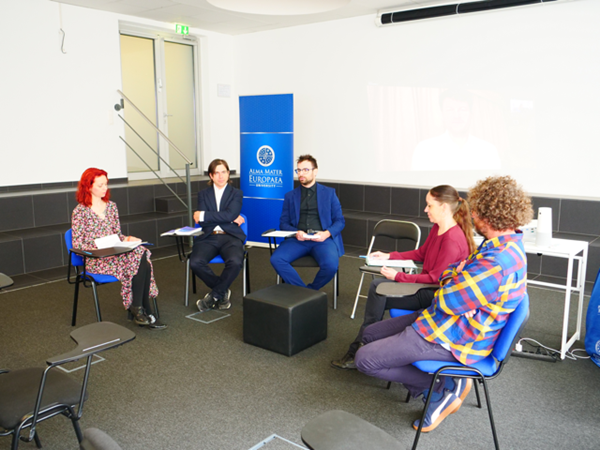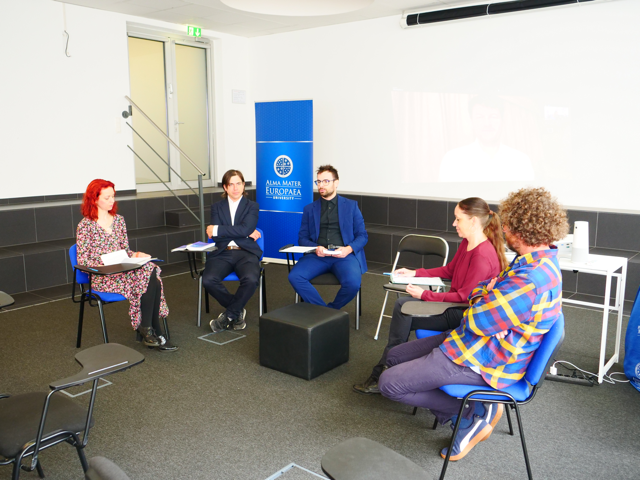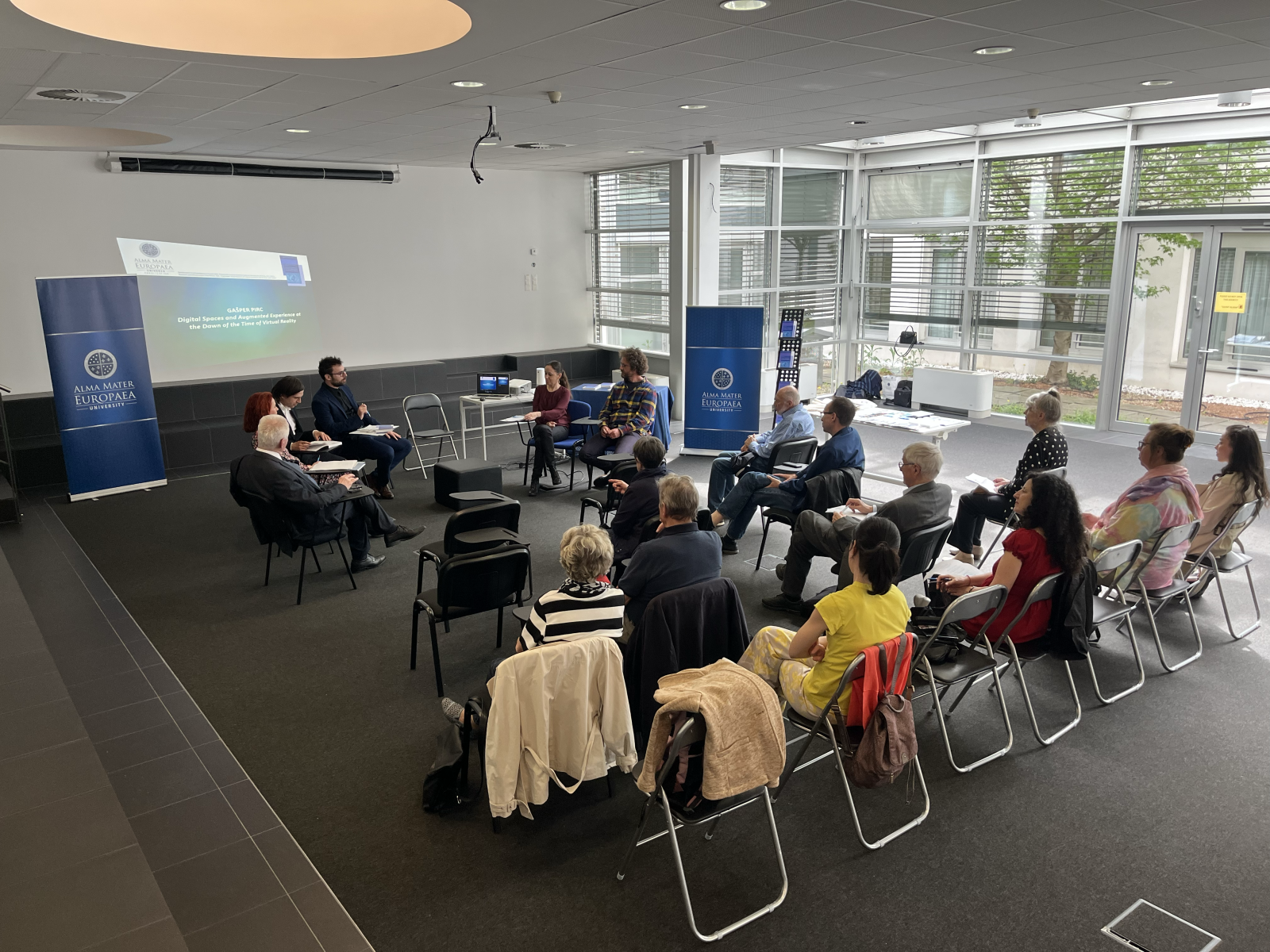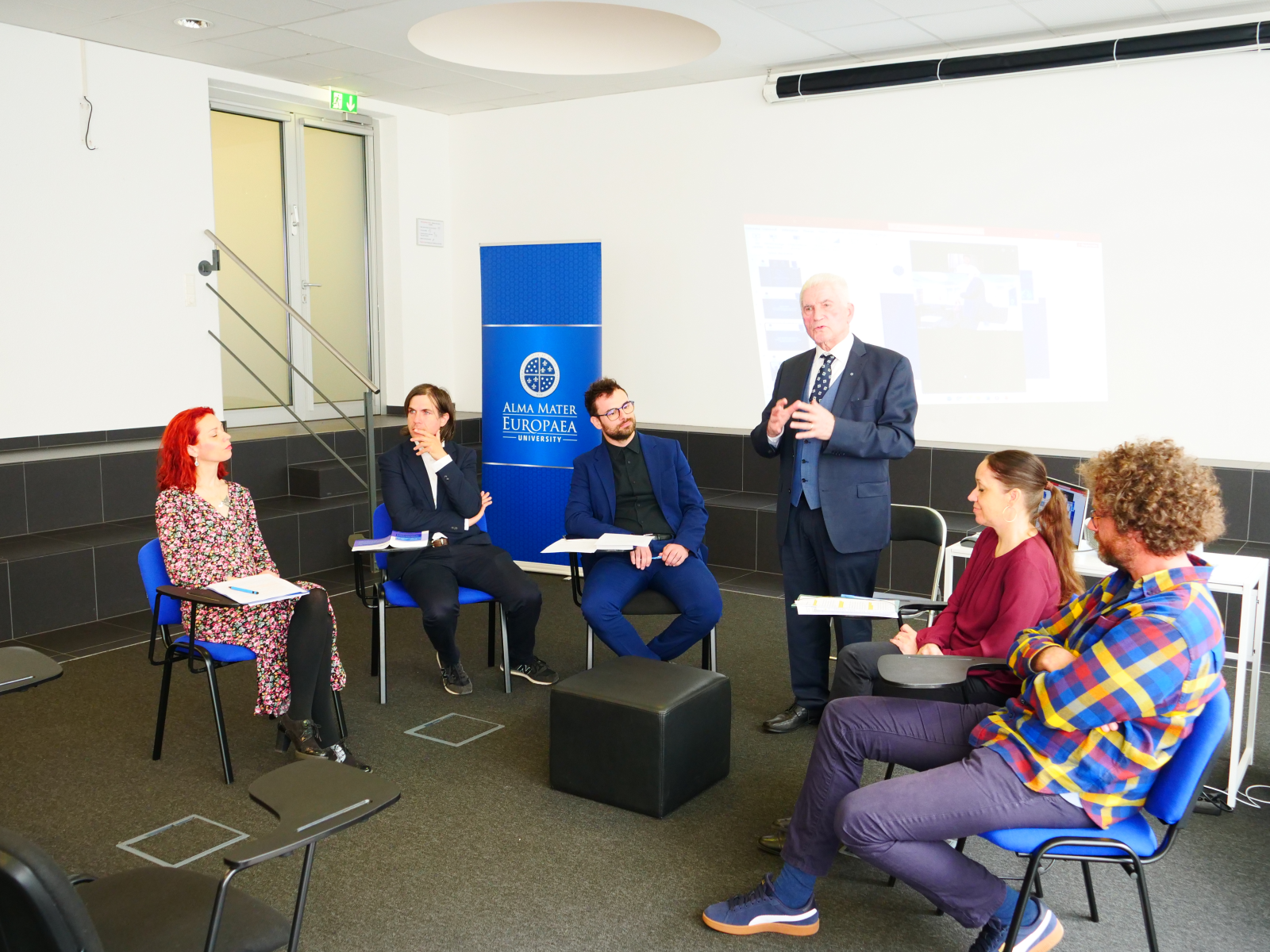
How Cultural Shifts Shape the Future

Alma Mater Europaea and Alma Mater Vienna hosted the premiere presentation of the interdisciplinary scholarly monograph Cultural Formations in Context: Historical and Contemporary Analyses in Vienna on April 17, 2025.
The book offers a comprehensive and innovative view of cultural formations through time, bringing together diverse academic perspectives in a world increasingly defined by complex cultural shifts and interdisciplinary challenges. The volume spans 350 pages and includes 13 original contributions by authors from Slovenia and Germany, representing the humanities and social sciences fields. These contributions help to understand better the key processes shaping our world. "Understanding modernity, contemporary society, human relationships, and the fundamental aspects of coexistence is more crucial than ever," emphasized co-editor and author Daniel Siter.
The scholarly volume, edited by Dr. Daniel Siter (history), Dr. Anja Hellmuth Kramberger (archaeology), and Dr. Jurij Toplak (law), was published by the renowned German publishing house LIT Verlag (2025). The book publishing and presentation are part of the research activities of the " Research of Cultural Formations " program group at the Faculty of Humanities of Alma Mater Europaea in Ljubljana.
The editors and authors presented key insights from the book and their contributions. Historian Dr. Daniel Siter analyzed the subversive influence of local Kulturbund cells in Slovenia and their role in the persecution of nationally conscious Slovenians and the intelligentsia during the German occupation.
Archaeologist Dr. Anja Hellmuth Kramberger discussed her research on the monumental archaeological site Göbekli Tepe as a space where, during times of profound social and environmental change, collective memory and community identity were materialized: "Göbekli Tepe is more than an archaeological site; it is a prehistoric space of remembrance where collective memory took shape in stone."
Dr. Meike Haken, presenting a sociological perspective on scientific communication as a cultural formation that transcends the traditional notion of one-way knowledge transmission, highlighted that "popular-cultural scientific communication as a cultural formation captures the spatial-temporal non-linearity and parallel impact of different forms of communication."
Dr. Gašper Pirc focused on the philosophical exploration of the impact of technological advancement and the digitalization of society, processes that challenge our understanding of human nature, the normative structure of society, and patterns of social behavior. "These challenges need to be addressed as soon as possible to mitigate their effects on society and the cultural formations of the future."
Miha Kunstelj shared his perspective on cultural formations by studying urnfield burial customs on the Istrian Peninsula during the Bronze Age, emphasizing the peninsula's role as a connective space between Central Europe and the Mediterranean.

Alma Mater Vienna offers undergraduate studies in physiotherapy and a doctoral program in Applied Artificial Intelligence. Currently, 19 students are actively participating in the educational process at Alma Mater Vienna. Director of Alma Mater Vienna, Professor Dr. Jurij Toplak, envisions the Vienna campus as an inspiring venue for studying, research, book presentations, conferences, and other academic activities. "I invite you to continue contributing to the development of this promising academic institution in Austria, through ideas, projects, and partnerships," concluded Dr. Jurij Toplak.
The event was also attended by the Rector of Alma Mater Europaea University, Professor Dr. Ludvik Toplak, who emphasized the importance of an interdisciplinary approach to contemporary societal challenges and highlighted the presented volume’s international relevance and scientific significance.

